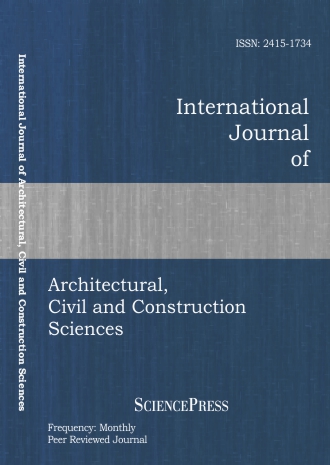
Scholarly
Volume:9, Issue: 6, 2015 Page No: 759 - 762
International Journal of Architectural, Civil and Construction Sciences
ISSN: 2415-1734
1119 Downloads
A Study of Factors Affecting the Elapsed Time of Housing Renewal Project Implementation in Seoul
This study analyzed the effect of area variables and economic variables on the length of each period of the project in order to analyze the effect of agreement rate on project implementation in housing renewal projects. In conclusion, as can be seen from these results, a low agreement rate may not translate into project promotion, and a higher agreement rate may not translate into project delay. The expectation of the policy is that the lower the agreement rate, the more projects would be promoted, but that is not the actual effect. From a policy consistency viewpoint, changing the agreement rate frequently, depending on the decision of the public, is not reasonable. The policy of using agreement rate as a necessary condition for project implementation should be reconsidered.
Authors:
References:
[1] H. J. Shin and C. M. Jung, “A study on the Factors Affecting in Housing